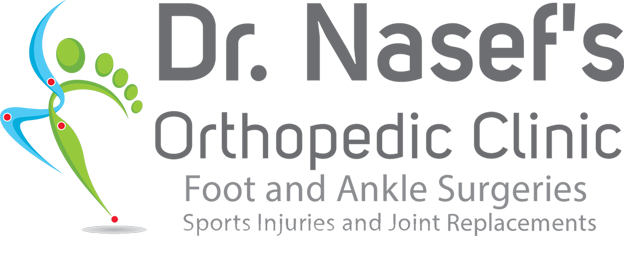What to expect after Knee surgery:
It is normal to have swelling and discomfort in the knee for several days or a week after surgery. Using ice bags or using Cryocuff will give you control over the swelling. Ice should be used 20-30 minutes at a time, every hour or two. If you use ice in a plastic bag, place a thin towel or T-shirt next to your skin. Ice is more important in the first 72 hours, although many people find that continuing its use reduces postoperative pain.
You will be given a prescription for strong pain medications when you are discharged from the hospital. If you find that you are still in pain, contact our office and we will try to find other solutions. Keep your leg high and this will prevent swelling and help reduce pain. The leg should be elevated above your heart level. Slide your ankles up and down. This should be done several times an hour to keep blood circulating in the leg and help prevent blood clots from forming. Keep the dressing after the operation clean and dry.
Unless it becomes too wet or tight due to swelling, leave the bandages in place for at least two days. Remove your bandages two days after surgery. You can bathe afterwards, but keep the wound dry for the first 10-14 days. Do not wet the wound directly (bathing or swimming) until at least two weeks after the operation.
The sutures are absorbable and do not need to be removed. Dr. Nasef would like to see you again in the office 10-14 days after surgery. If you do not have your first visit after the scheduled operation, contact our office to schedule one. Start rehabilitation / physiotherapy immediately after surgery. Your physical therapy program is the key to a successful outcome. You should start the day after surgery. We will give you a separate prescription with the required protocol. It is often easier to contact them before surgery to make an appointment with a physiotherapist.
Preferably you should spend the first few days with a caring and responsible adult. Refrain from drinking alcohol and smoking. And eat a regular diet, if there is no nausea, prefer to drink a lot of non-alcoholic fluids, and non-caffeine. Do not make important decisions or sign legal documents. Prepare to plan to take a few days off from work.
Antibiotics after joint replacement
Although rare, there are documented cases of infection caused by bacteria introduced into the bloodstream for example through certain dental procedures. Different approaches can be taken to prevent this, particularly with regard to the use of antibiotics prior to the dental procedure.
After extensive studies, the research found the following:
Preventive antibiotics should be given to:
- All patients have joint replacement within two years, regardless of the type of dental procedure or patient’s health condition.
- All patients, who suffer from immunodeficiency, for example have diabetes and insulin-dependent, or systemic inflammatory disease such as rheumatoid arthritis or systemic lupus erythematosus, regardless of how long they have surgery.
- All patients, regardless of health status or since when they have surgery, who have interventional dental procedures. These include extraction, periodontal procedures, placement of dental implants, root canals or dental cleaning likely to cause bleeding.
Prevention should consist of a single dose of 2 g of amoxicillin or cephalexin given orally one hour before the dental procedure. In patients, who are allergic to penicillin, 600 mg of clindamycin may be given instead.
If the patient is unable to take oral drugs, 1 g of IM / IV cephalexin or 2 g of ampicillin IV / IM is recommended. Finally, if the patient is allergic to penicillin and is unable to take oral medications single dose 600 mg of clindamycin IM / IV should be taken one hour before dental procedure.
. If you are undergoing a dental procedure, or even some other interventional procedure such as cystoscopy or sigmoidoscopy, you should inform your dentist or doctor that you have an artificial joint. Please contact our office if you have additional questions or need a report.


